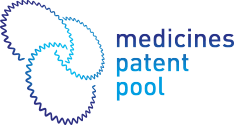MPP Statement at Informal Discussion on the Development of the Roadmap on Access to Medicines and Vaccines 2019-2023
10 September 2018
The Medicines Patent Pool (MPP) welcomes the opportunity to provide inputs to the Draft Roadmap on access to medicines and vaccines.
We note that one of the deliverables considered as potentially having significant impact on access to safe, effective and affordable medicines is supporting the expansion of the MPP to essential medicines under patent. This expansion is in fact already in process.
The MPP was established by Unitaid as a mechanism to promote innovation and access to medicines through public health-oriented licensing. It is a concrete example in moving towards Universal Health Coverage by enabling over 100 countries to get faster access to new HIV, hepatitis C and TB treatments at affordable prices and in suitable formulations.
With the support of the Swiss Development and Cooperation Agency, the MPP recently undertook a feasibility study to assess the potential for the MPP’s patent pooling model to be applied to patented essential medicines in other therapeutic areas. Following strong support from Member States at the EB and WHA, the MPP is now starting development of a framework to assess candidate products for licensing. Discussions with WHO, Member States and other stakeholders will be important to understand access gaps.
As we implement the expansion, we will need to engage with other “deliverables” mentioned in the roadmap, for example quality assurance for products outside the WHO Prequalification list. This may be facilitated by strengthening national regulatory capacity, the development of new routes for WHO Prequalification or expansion of the Prequalification Program.
MPP is also working closely with WHO to facilitate transparency around the patent status of essential medicines in low and middle-income countries. Our Patents & Licences database (known as MedsPaL) is a free platform that provides patent, licensing and regulatory data exclusivity information in over 100 LMICs.
Finally, we also support the development of best practices for licensing of publicly-funded R&D results to help ensure that licensing incorporates innovation and access needs in LMICs. We would be happy to share our experience with public health oriented provisions as this work progresses.










